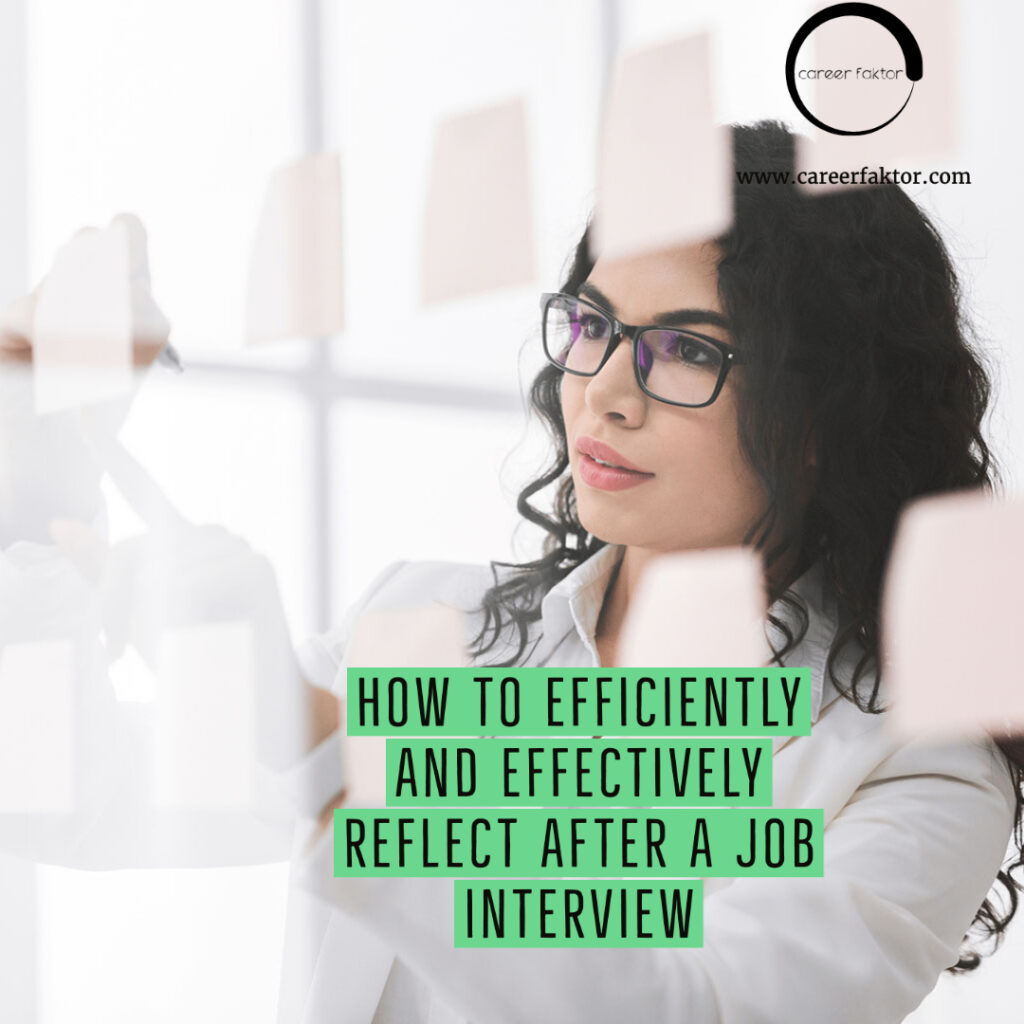Immediately after your job interview, sit down and reflect.
Reflecting on a job interview is a crucial step in the job search process. It allows you to evaluate your performance, identify areas for improvement, and make adjustments for future interviews. Tips to reflect after a job interview:
- Act immediately
Write down your thoughts and observations immediately after the interview. Any questions you felt you struggled with, key points you made, and areas where you felt you could have done better?
2. Reflect on your unclear responses
Keep track of any answers you felt weren’t quite right or where your logic or story wasn’t quite clear. Is there anything you could add or modify to clarify?
3. Analyze incomplete responses
Keep a note of answers that you wanted to add later, but didn’t think of during the interview. Could you have included anything else?
4. Note down the responses you aced
Take note of your on-point answers, your thought process, your articulateness, and the times you conveyed your response clearly. Take a bow!
5. Analyze your performance
Analyze your notes and objectively assess your performance. Consider your answers to the questions, your body language, and how well you connected with the interviewer. Be honest with yourself about your strengths and weaknesses.
6. Evaluate your answer types
Reflect on your responses to the interview questions. Were your answers clear, concise, and relevant? Did you provide specific examples to support your skills and experience? Did you use keywords? Analyze whether the employer’s needs were met.
7. Choose and focus on specific areas to showcase
Make a list of the most important points the target company should know. Your points should relate to what you want the target company to know and remember about you.
8. Assess your non-verbal communication
Reflect on your body language, tone of voice, and overall demeanour during the interview. Did you appear confident, engaged, and professional? If you see any nervous habits or distracting behaviours, work on them in future interviews.
9. Consider the interviewer’s feedback
If the interviewer provided any feedback or constructive criticism, consider it. This feedback can be invaluable in identifying areas to improve. If no feedback was given, try to reflect on the overall dynamics of the interview to gauge how well you performed.
10. Identify areas for improvement
Based on your analysis, identify specific areas where you can enhance your interview skills. It could be improving your ability to articulate your experience, practising common interview questions, or working on your confidence. Focus on these areas in your future interview preparations.
11. Learn from the experience
Treat each interview as a learning opportunity. Build on what you did well. Develop strategies to address areas where you failed. Be growth-minded and always strive to improve.
12. Develop an action plan
Create a plan to improve your interview performance. Practice mock interviews, seek feedback from mentors, and engage in targeted skill-building exercises.
13. Be sure to thank them for their time and continued consideration.
Remember, they are people, and like all people, they appreciate appreciation. They’ve invested time in reviewing and considering your application and meeting with you. Say “Thank you.”
Remember, reflection is crucial for growth and improvement, but it’s equally critical to maintain a positive attitude throughout the process. Learn from your experiences, adapt your approach, and keep striving for job search success.
Stay tuned and follow me for more such actionable #careerinsights
✍️ Connect with me to get a professionally written resume, cover letter & LinkedIn profile optimised.

